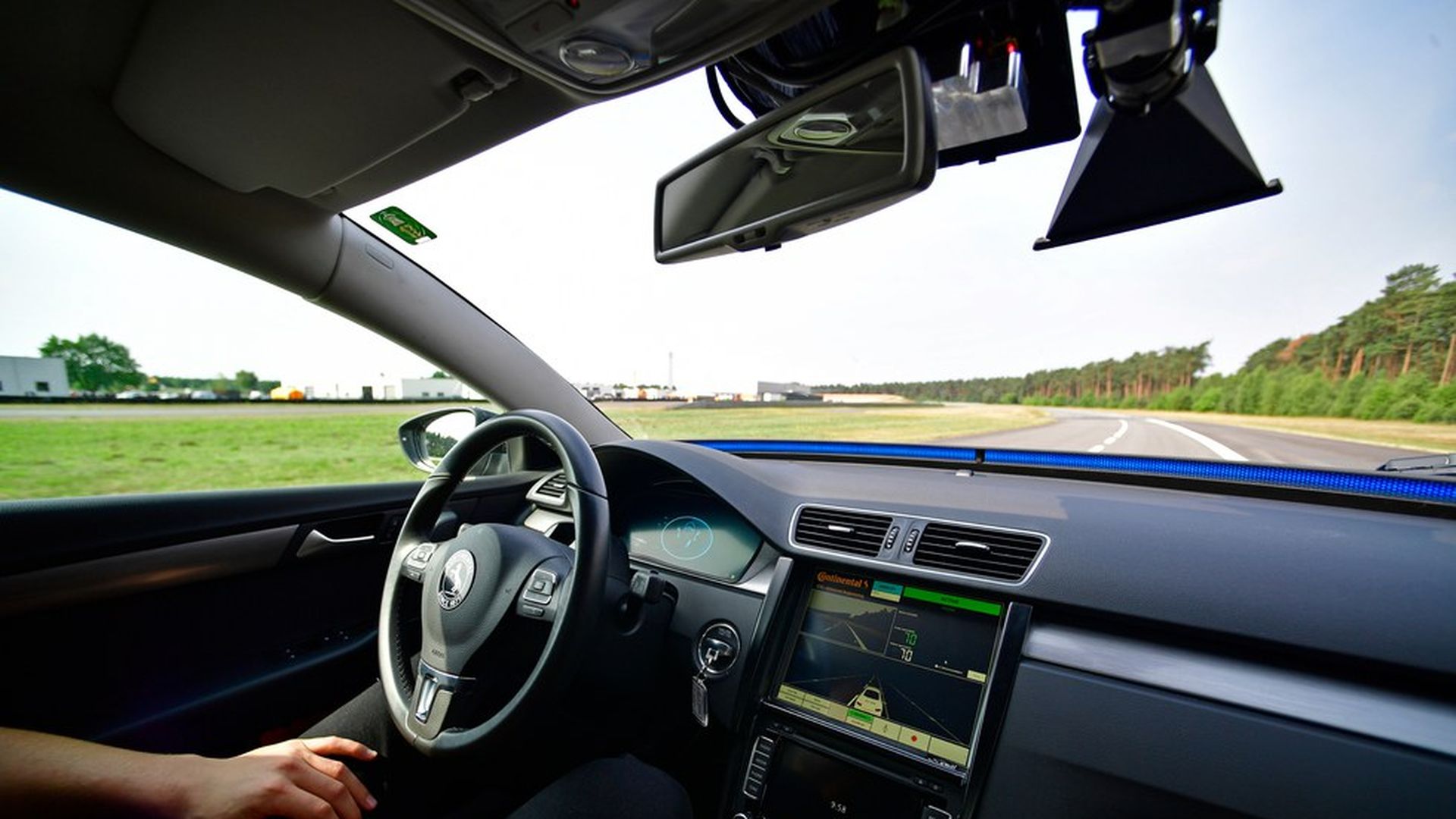Oct 11, 2017 - Technology
Ex-Android startup Cyngn pivots to self-driving
Add Axios as your preferred source to
see more of our stories on Google.

Getty Images/ Alexander Koerner
Add Axios as your preferred source to
see more of our stories on Google.

Getty Images/ Alexander Koerner